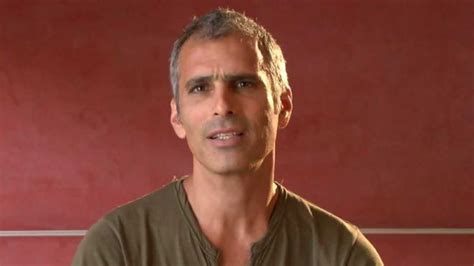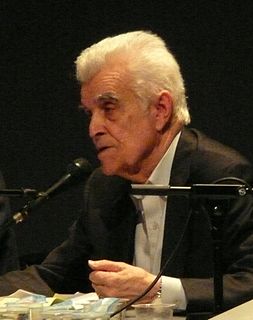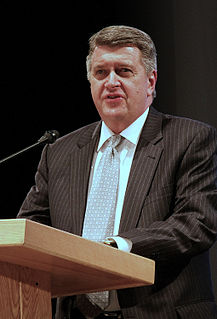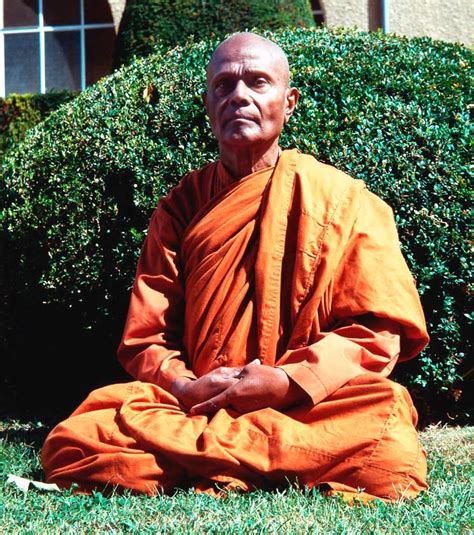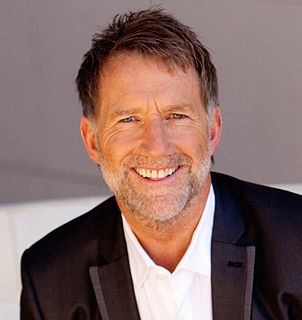A Quote by Bryan Kest
We are acting on our desire; there is nothing wrong. Just remember if it does not pan out, if our desires go unfulfilled, it's perfect!
Related Quotes
Buddhism doesn't promise to fulfill our desires. Instead it says, 'You feel unfulfilled? That's okay. That's normal. Everybody feels unfulfilled. You will always feel unfulfilled. There is no problem with feeling unfulfilled. In fact, if you learn to see it the right way, that very lack of fulfillment is the greatest thing you can ever experience.' This is the realistic outlook.
There are urges and urges; you are exploding with urges, desires. You don`t have one desire, you have many desires. Not only that you have many desires, you have contradictory desires. If one is fulfilled, the other, which is its contradiction, remains unfulfilled and you are in misery. If the other is fulfilled, then something else remains unfulfilled.
Every time you have a desire, in a certain sense you have a goal, something you would like to be, do, or have. Some desires are merely passing fancies, but others stay with us and go deeper. Our desires and our goals give us direction and focus. They help point us down our path of action in our life.
Increase and widen your desires till nothing but reality can fulfill them. It is not desire that is wrong, but its narrowness and smallness. Desire is devotion. By all means be devoted to the real, the infinite, the eternal heart of being. Transform desire into love. All you want is to be happy. All your desires, whatever they may be are expressions of your longing for happiness.
True prayer is only another name for the love of God. Its excellence does not consist in the multitude of our words; for our Father knoweth what things we have need of before we ask Him. The true prayer is that of the heart, and the heart prays only for what it desires. To pray, then is to desire -- but to desire what God would have us desire. He who asks what he does not from the bottom of his heart desire, is mistaken in thinking that he prays.
Buddha says this is how one should be - no desire, because all desires are futile. They are about the future; life is in the present. All desires distract you from the present, all desires distract you from life, all desires are destructive of life, all desires are postponements of life. Life is now and the desire takes you away, farther and farther away from now. And when we see that our life is misery we go on throwing the responsibility on others, and nobody is responsible except us.
We must remember that much spiritual growth does not occur suddenly but rather through time and experience. The encouraging message of the gospel is that God does not often require us to perform sensational or extraordinary deeds but rather to try to do better today than we did yesterday. He is mindful of our desires, our determination, and our direction as well as of our deeds.
Buddha says: Life should be simple, not complex. Life should be based on needs, not on desires. Needs are perfectly okay: you need food, you need clothes, you need a shelter, you need love, you need relationship. Perfectly good, nothing wrong in it. Needs can be fulfilled; desires are basically unfulfillable. Desires create complexity. They create complexity because they can never be fulfilled. You go on and on working hard for them, and they remain unfulfilled, and you remain empty.
DUE TO OUR FEELINGS ARISING FROM CONTACT, we think and we rationalize, conceptualize, theorize, philosophize and speculate. Because of the feeling arising from the six senses, we increase our desire; we come to wrong views and wrong beliefs. We recall our past sights, smells, sounds, tastes, touches and ideas and build up more desires, thoughts, concepts, beliefs, ideas, theories and philosophies.
The inward persuasion that we are free to do, or not to do a thing, is but a mere illusion. If we trace the true principle of our actions, we shall find, that they are always necessary consequences of our volitions and desires, which are never in our power. You think yourself free, because you do what you will; but are you free to will, or not to will; to desire, or not to desire? Are not your volitions and desires necessarily excited by objects or qualities totally independent of you?
Why do you dream? - because there are so many desires unfulfilled, and to live with unfulfilled desires is painful. In dream you try to fulfill them; in dream you create a false feeling of fulfillment. Hence your dreams show much about you: what your desires are, what you want to become. But if you want to become anything in life, you are asleep.
That is Buddha`s meaning of nirvana: to be free from life and death, to be free from desire. The moment you are free from all desires... remember, I repeat, ALL desires. The so-called religious, spiritual desires are included in it, nothing is excluded. All desires have to be dropped because every desire brings frustration, misery, boredom. If you succeed it brings boredom; if you fail it brings despair. If you are after money there are only two possibilities: either you will fail or you will succeed. If you succeed you will be bored with money.
